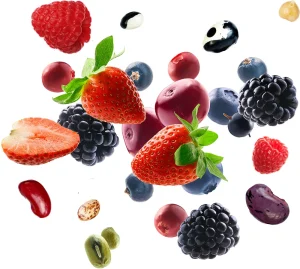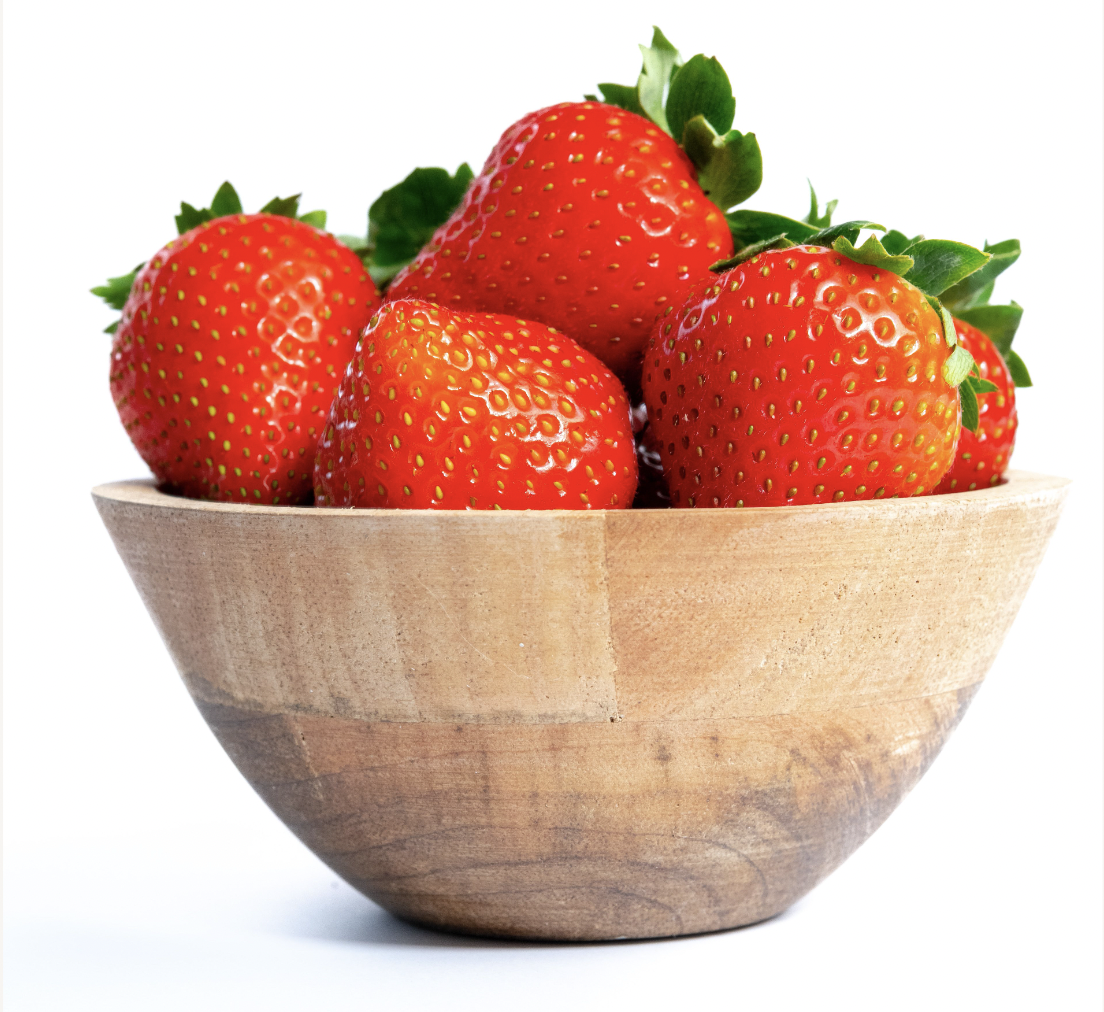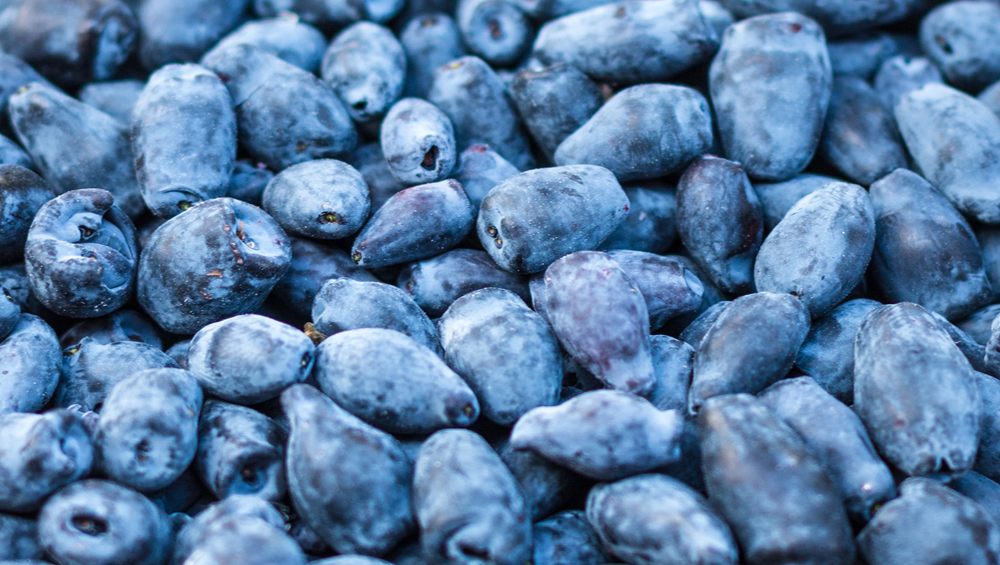The Health Benefits of Berries
When it comes to foods that taste amazing and are also good for you, berries top the bill. The range of flavour and texture across the different types make them a hugely versatile group. In the UK, we are lucky to have a range of delicious berries grown from April to November, from sweet strawberries and raspberries to tart elderberries and gooseberries, to bitter Sea Buckthorn berries. Though berries have a short life once harvested, they freeze brilliantly, preserving their flavour and nutrients. This also creates availability of berries, both from the UK and around the world, year-round.
Our favourite thing about berries is their versatility; they pair well with nearly all other foods. Strawberries, for example, delicious on their own or traditionally paired with cream and meringue, are also delicious in savoury dishes, pairing well with seafood such as scallops and oysters, salty feta and halloumi, as well as a range of herbs and spices including mint, tarragon, cardamom and ginger. Blackberries also suit both sweet and savoury formats. Delicious in crumbles and cakes, they also go perfectly with red meats including venison and lamb, as well as goats and blue cheeses.
In addition to being delicious, they also boast a range of health benefits. Berries contain a range of antioxidants including Vitamin C and anthocyanins; a naturally occurring plant pigment that give fruit their depth of colour. Antioxidants help protect cells against damage which can help maintain good skin and hair, and it’s been suggested that they can also help protect cells against disease and help maintain healthy brain function, memory and focus. Berries are rich in a range of micronutrients including potassium, magnesium, and Vitamin K, which have a range of key functions in the body including muscle and nerve health as well as healthy blood function. Berries are a natural source of soluble fibre which helps draw water into the gut and aids nutrient absorption.
Lucy’s top 3 berries
Recently, three berries have topped the trend conversation for their flavour and health benefits: haskap, acai and aronia berries. But why? Let’s look at each one.
Haskap berries, also known as edible honeysuckle or honeyberry, are an elongated berry similar in colour and texture to blueberries. A native to the northern hemisphere, they’re thought to originate in Siberia, but also grow in Canada, Northern Europe and the northern Japanese island of Hokkaido. It’s here that it’s said they were given the name ‘haskap’. They have a powerful flavour described as having dominant notes of blueberry and raspberry with undertones of blackcurrant and elderberry, and a perfect mix of sweet and tang. Their health benefits have been making a buzz too. Haskap are argued to have the highest level of anthocyanins found in any berry – four times the level found in blueberries.
Research published in the European Journal of Nutrition in 2018 suggests that this high level of anthocyanin have benefits for brain cognition, mood and blood pressure. Further research also suggests that haskap berries may have a positive impact on endurance and recovery in sport. Try them blended into a smoothie, stirred through porridge, added to crumble, or blended into a vinaigrette and poured over a spinach, feta and walnut salad.
Haskap Berries
Acai has really stolen the lime-light in the health food scene recently. These grape-like fruits are native to South America and grow in the Amazon rainforest. The small, dark purple berries are harvested from the Acai palm and are not eaten whole due to the tough skin so are soaked in water to soften the berries, then the pulp is removed. The flavour is described as being tart and earthy without much sweetness but with notes of raspberry and pomegranate. The acidic nature of the berry means it pairs well with both sweet and savoury foods.
The pulp is normally either frozen or powdered as the berries perish very quickly after harvesting. Similar to haskap berries, acai also contain high levels of antioxidants boosting their reputation as a health food. A small study exploring the impact of acai on metabolic function in adults found that after consuming acai pulp twice a day for 30 days, there was a reduction in total cholesterol, suggesting that acai pulp has potential benefits for cardiovascular health. The fruit is natural source of fibre, high in protein and iron, and very low in sugar making them a good alternative to other fruits.
 Acai Smoothie Bowl
Acai Smoothie Bowl
Aronia berries, also known as chokeberries, have gained similar notoriety for their health benefits as haskap and acai. The small, dark berries are very tart with a dryness to them that sets them apart from other, more widely known berries. Though their tartness can be unappealing, their rich depth of flavour offers a great alternative to blueberries, blackberries and blackcurrants and can be easily used in place of these berries.
They pair well with various sweeter fruits and make a deliciously rich cordial when cooked down with water and sugar. Native to North America, the aronia plant also grows well in the UK making them a more sustainable option compared to imported alternatives such as acai.
















